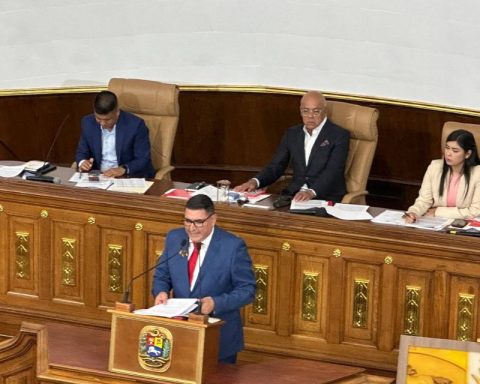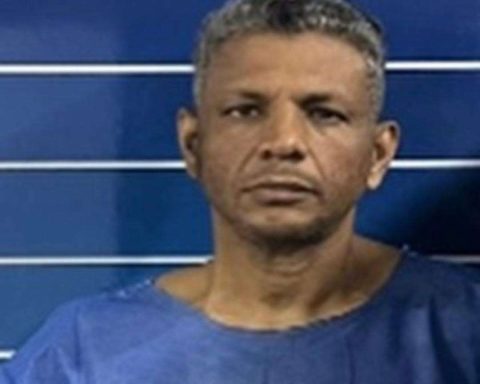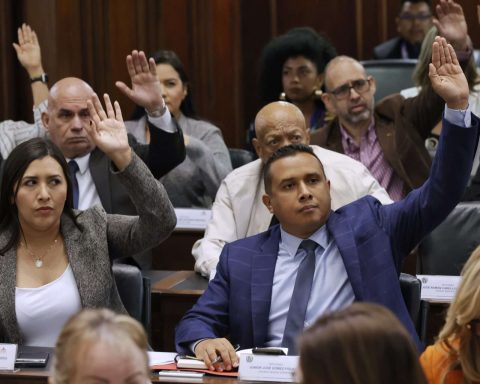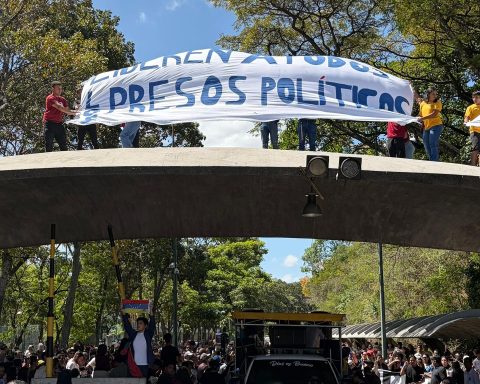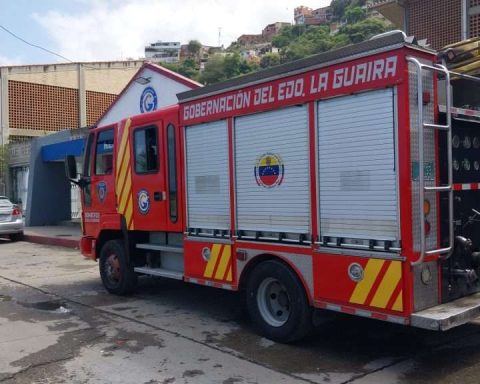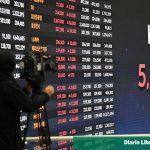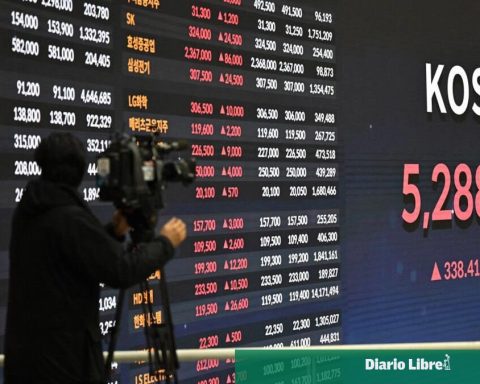The long wait to “fill the tank” in cities like Maracaibo has ended in the last 10 days. Users, surprised, expect this improvement in gasoline to prevail. The recovery of the trucks that transport the fuel has been key
Text: Gustavo Ocando Alex
Pedro Fernández, a Venezuelan in his 50s, has just spent 35 minutes on a task that for several years has taken him hours and even a whole day: filling the tank of his car at a gas station in Maracaibo, in the west. of Venezuela, bordering Colombia.
This Friday, there are barely two dozen cars and trucks outside a gas station in the north of his city. Weeks ago, hundreds of vehicles could be counted in that same place, with their drivers spending the night since the night before to guarantee their quota according to the terminals on their license plates.
The short wait is a pleasant surprise. “It has improved, thank the Lord. Let’s hope it continues to improve. Before, this was an odyssey to fill fuel, “says Fernández to the Voice of America, while he waits with his arms crossed, but with great humor, for the dispensing machine to finish filling him with gasoline.
That dry sound, like a metal trigger being stopped suddenly, means that the vehicle’s tank can no longer hold another drop of gasoline. In cities of Venezuela like Maracaibo, where the lack of fuel is longstanding, it is a cadence of satisfaction, of a complicated goal, but achieved.
For citizens like Fernández, dedicated to advertising jobs, that sound is equal to “tranquility.” “You spend your time (outside the queue) to what you have to spend”, like family and work, he says, still in high spirits.
Maracaibo, nicknamed “the oil city” of Venezuela for being the capital of the state with the largest crude oil reserves in the South American country, Zulia, has been experiencing a critical fuel shortage for six years.
It was common to see until days ago its streets and avenues full of hundreds of cars parked near gas stations. So much so, that there were residents who sarcastically said that it stopped being a city to become a parking lot.
Queues at service stations were so long until two weeks ago that people like Jimmy Estabiquia, a resident of Maracaibo, preferred to buy gasoline on the black market at prices that doubled the official rate. The locals call these resellers and smugglers “bachaqueros”.
Seeing a fairly empty gas station led the man to join a very short line of cars to refuel. “Because of my job, I had to buy (contraband). It is the first time that I come after the situation (of the long queues) was normalized. Let’s hope it doesn’t change,” he says.
*Also read: Queues increase at the E/S of Anzoátegui, Lara and Sucre due to gasoline shortage
Gasoline transportation
Citizens like Fernández and Estabiquia wonder what changed in the distribution of fuel in Maracaibo and San Francisco, in the metropolitan area of the western region of Zulia, to end so drastically in the last 10 days with the long queues at gas stations.
The maintenance and repair of the tanker truck fleet of the state-owned Petróleos de Venezuela have been “key” for this, sources familiar with the administration of local gas stations told the VOA.
The smooth operation of gasoline transportation to service stations has allowed, on average, at least one truck per day, loaded with 38,000 liters of fuel, to arrive at city gas stations. Months ago, it happened that the ‘tanker’ dispatched barely a third of that quota.
“Sometimes we receive up to two tankers for each station. That allows us to ‘pour’ 40 liters to between 900 and 1,000 cars at each gas station. There is fuel, but now there is also how to transport it”, explains one of the informants, who preferred anonymity because he was not authorized to speak.
The government of President Nicolás Maduro blames the lack of gasoline in some areas of the country on the economic sanctions imposed by the United States on the Venezuelan oil sector during the last three years.
Their spokesmen assure that the “blockade”, as they call it, prevents them from having the necessary resources and products for the refining of local crude oil.
Economists specialized in the oil industry point out that the lack of maintenance of the refineries predates the sanctions, although they admit that these industrial parks operate today at less than 20% of their capacity.
The agreements between Venezuela and Iran, an old political adversary of the United States, meanwhile have made it possible to supply Venezuela’s internal market with gasoline and diesel, although barely in regions such as Zulia and Los Andes.
This month, news broke of a binational agreement for employees of the Iranian state-owned National Oil Refining and Distribution Company to carry out repairs and expansions at one of its main refineries, El Palito.
An agreement is also expected for similar work by Iranian personnel at the Paraguaná Refining Complex, which has an installed capacity of 955,000 barrels per day, but currently operates at less than 17%.
Since last September, Iran has sent condensed products to Venezuela to help it improve the quality of its extra-heavy crude from the Orinoco Belt and, in turn, facilitate the refining of fuel for the domestic market.
Also, since the beginning of May, Iran began to send tens of thousands of barrels of its Iranian heavy oil directly to the main refineries in Venezuela, which is useful for lightening the production of gasoline and diesel.
*Also read: Gasoline stations declare bankruptcy and require PDVSA to pay debt
A better ‘tank’
Juan Simancas, a Venezuelan who carefully checks how many liters are dispensed in the tank of his vehicle at a gas station in Maracaibo, points out that he had never had “time” or the desire to refuel after hours of queuing.
This Friday, it only took him half an hour. Other users detailed that they entered and left the service stations, already with a full tank, in five minutes.
“The important thing is that we can ‘tank’. It is much better right now”, he expresses to VOA, before criticizing the slowness when paying for his 40 liters, the maximum allowed in most, if not all, gas stations.
The electronic point of sale of that gas station is damaged and its managers take time to confirm the bank transfers of the clients. Another recurring problem is the lack of a simple way to give users change in dollars – many are reluctant to receive bolívars if they pay in US currency.
A report by the private US driver education company, Zutobi, indicated that Venezuelan gasoline was the cheapest in the world: 11 cents per gallon, almost six dollars less than the global average.
This conclusion is relative in a country whose fuel has dual official prices. There is a gasoline subsidized by the Venezuelan State, whose cost is 0.11 bolívares per liter, that is, not a penny on the dollar; There is also another product that is sold at a “dollarized” rate: half a dollar per liter.
It also happens that most gas stations, guarded by police or military, require a certain number of plate terminal to provide service. This Friday, for example, it is the turn only of numbers 5 and 6.
Jamar Cote, a 20-year-old approaching a “dollarized” gas station for the first time in months, seems unconcerned by the tirades about prices and license plates. The important thing is how long it took to get to the pump.
“My dad was the one who ‘put’ gasoline. For him, it took hours. For me, less than half an hour”, he indicates, calmly waiting for the car in front to start so he can advance to his goal for the day: a full tank in a short time.
Post Views:
80

